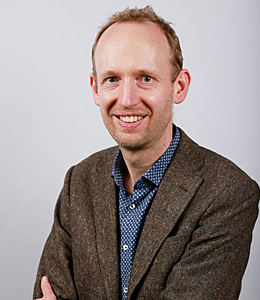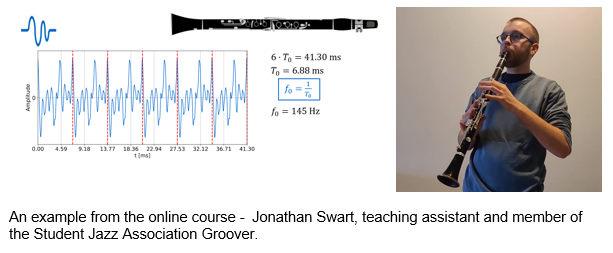Physics at university is a serious matter – That’s why we make it fun!
A new free online course helps students prepare for their university studies. Spread the word.
Physics, similar to calculus, is a crucial subject in many engineering studies, applicable across programs and faculties. For example, besides being an important prerequisite for the Applied Physics program, physics is equally relevant for students of Electrical Engineering and Aerospace Engineering. However, although the laws and principles of physics do not change once a student arrives at university, what does change are the approach and language used.
To help high-school students bridge the gap between their knowledge and the way that knowledge is presented and used at university, a new online course – Pre-University Physics – is launching on 7 June.
“Starting a bachelor degree program is an exciting step for students, but it can also cause some insecurity and anxiety. Especially for those who due to Covid-19 may not have finished their final year in the best of ways and in addition are facing a strange start at university, it can be quite challenging”, says Sander Otte, Professor of Physics at the Faculty of Applied Sciences, and responsible for the development of the MOOC.
Translating physics into a new language
As high-school physics prepares students for a variety of different higher education choices, it is not specifically tailored to the needs of an engineering degree. “There is usually a gap between the way physics is taught in high-school and at university, and students can run into difficulties once they come across a more academic, formal way of doing things’, Otte explains. “With this course we want to prepare them for the transition so that they can have the best chances of success once they join their study program at TU Delft”.
“Physics at university is more abstract and mathematical and students need to get used to and understand this new language. At the same time, we need to teach this new language in an accessible and engaging way. This is where remembering what it was like dealing with such challenges comes in!” remarks Otte.
Put yourself in their shoes
“To better cater to this particular student group, when developing the course we worked with a team of Teaching Assistants (TAs), made up of second and third year students, and gave them lots of freedom to devise exercises and fun elements such as sparks. These short videos make the subject matter more appealing to the age group. This not only works very well for the content and delivery of the course, but it has the added benefit of supporting the TAs’ own development, giving them the opportunity to get some experience in creating educational materials”, he comments.
In addition, the TAs working on the course are from different faculties: Applied Sciences, Electrical Engineering, Mathematics & Computer Science, and Aerospace Engineering. They use their own study background to create inspiring exercises, as well as their own direct experience of the difficulties of dealing with university physics as a new student.
Formal doesn’t mean boring
The online course makes university level physics approachable and fun. The exercises and examples draw from a variety of real-life situations that students can easily relate to. For example, how the boundary conditions of waves lead to different tones in various musical instruments.
The MOOC consists of three modules: Mechanics, Electricity & Magnetism, and Waves. The online course does not limit itself to provide students with a new language, but gives them a new way to approach, understand and apply physics. One that includes the ability to not take things for granted, but to ask questions about particular situations. “Students come to appreciate that the meaning of a certain symbol – for example m for mass ¬– is not defined globally, but refers to a particular object in a given situation. Asking, “what does m mean?” may at first sound dumb, but is often an excellent question”, explains Otte.
Also for internationals
Since opening for registration in the last few weeks, the MOOC already counts enrolments from 78 different countries. The free, online course is valuable to any student that wishes to pursue an engineering degree, irrespective of their coming from a Dutch or any other international education system, and whether they will pursue their university studies at TU Delft or at another institution.
“On the one hand, the course can give students an insight on what it means to study at TU Delft, preparing them for the level of knowledge and the approach needed in our programs” reflects Otte, “on the other, at TU Delft we recognise that to provide knowledge beyond our own campus benefits us as an institution and helps us remain at the forefront of developments in online education”.
A winning combo
TU Delft already offers a MOOC on Pre-University Calculus. With well over 100,000 enrolments to date, this self-paced online course teaches and prepares high-school students for university level mathematics, showing them how it is used in different engineering and science disciplines.
Together with the new offering in Physics, our university is thus broadening its reach to support even more students worldwide in acquiring critical knowledge and skills, providing a great learning experience and contributing to their study success.
“While I look forward to the first run of our MOOC, I can already envisage new possibilities opening up in the future” comments Otte, “It could be interesting to consider creating similar online courses for other foundation subjects, such as chemistry. We have many experts at TU Delft and the online format gives us flexibility and outreach. We shouldn’t underestimate how much people value the knowledge we can share through online education. As lecturers it gives us international exposure and increases the reputation of our university”, he concludes.
- Do you know a high-school student, friend or colleague who could be interested in Pre-University Physics? Tell them to check it out and watch the introductory video. Start date: 7 June 2021.
- Interested in developing an online course to help bridge the knowledge gap that high school students can experience once they start a degree programme at TU Delft? Reach out to your Faculty Coordinator for online education or email the Extension School for Continuing Education


